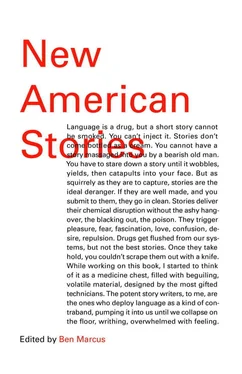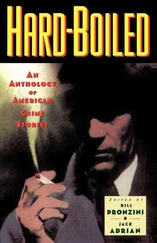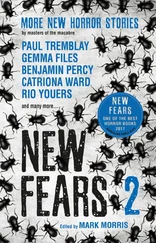As for me? My usual guise. The masquerade continues.
Elaine got a wall phone for the kitchen, a sleek blue one that wears its receiver like a hat, with a caller-ID readout on its face just below the keypad. While I eyeballed this instrument, having just come in from my visit with the chiropractor, a brisk, modest tone began, and the tiny screen showed ten digits I didn’t recognize. My inclination was to scorn it, like any other unknown. But this was the first call, the inaugural message.
As soon as I touched the receiver I wondered if I’d regret this, if I was holding a mistake in my hand, if I was pulling this mistake to my head and saying “Hello” to it.
The caller was my first wife, Virginia, or Ginny, as I always called her. We were married long ago, in our early twenties, and put a stop to it after three crazy years. Since then, we hadn’t spoken, we’d had no reason to, but now we had one. Ginny was dying.
Her voice came faintly. She told me the doctors had closed the book on her, she’d ordered her affairs, the good people from hospice were in attendance.
Before she ended this earthly transit, as she called it, Ginny wanted to shed any kind of bitterness against certain people, certain men, especially me. She said how much she’d been hurt, and how badly she wanted to forgive me, but she didn’t know whether she could or not — she hoped she could — and I assured her, from the abyss of a broken heart, that I hoped so, too, that I hated my infidelities and my lies about the money, and the way I’d kept my boredom secret, and my secrets in general, and Ginny and I talked, after forty years of silence, about the many other ways I’d stolen her right to the truth.
In the middle of this, I began wondering, most uncomfortably, in fact with a dizzy, sweating anxiety, if I’d made a mistake — if this wasn’t my first wife, Ginny, no, but rather my second wife, Jennifer, often called Jenny. Because of the weakness of her voice and my own humming shock at the news, also the situation around her as she tried to speak to me on this very important occasion — folks coming and going, and the sounds of a respirator, I supposed — now, fifteen minutes into this call, I couldn’t remember if she’d actually said her name when I picked up the phone and I suddenly didn’t know which set of crimes I was regretting, wasn’t sure if this dying farewell clobbering me to my knees in true repentance beside the kitchen table was Virginia’s, or Jennifer’s.
“This is hard,” I said. “Can I put the phone down a minute?” I heard her say OK.
The house felt empty. “Elaine?” I called. Nothing. I wiped my face with a dishrag and took off my blazer and hung it on a chair and called out Elaine’s name one more time and then picked up the receiver again. There was nobody there.
Somewhere inside it, the phone had preserved the caller’s number, of course, Ginny’s number or Jenny’s, but I didn’t look for it. We’d had our talk, and Ginny or Jenny, whichever, had recognized herself in my frank apologies, and she’d been satisfied — because, after all, both sets of crimes had been the same.
I was tired. What a day. I called Elaine on her cell phone. We agreed she might as well stay at the Budget Inn on the East Side. She volunteered out there, teaching adults to read, and once in a while she got caught late and stayed over. Good. I could lock all three locks on the door and call it a day. I didn’t mention the previous call. I turned in early.
I dreamed of a wild landscape — elephants, dinosaurs, bat caves, strange natives, and so on.
I woke, couldn’t go back to sleep, put on a long terry-cloth robe over my p.j.’s, and slipped into my loafers and went walking. People in bathrobes stroll around here at all hours, but not often, I think, without a pet on a leash. Ours is a good neighborhood — a Catholic church and a Mormon one, and a posh town-house development with much open green space, and, on our side of the street, some pretty nice smaller homes.
I wonder if you’re like me, if you collect and squirrel away in your soul certain odd moments when the Mystery winks at you, when you walk in your bathrobe and tasseled loafers, for instance, well out of your neighborhood and among a lot of closed shops, and you approach your very faint reflection in a window with words above it. The sign said “Sky and Celery.” Closer, it read “Ski and Cyclery.”
I headed home.
I was having lunch one day with my friend Tom Ellis, a journalist — just catching up. He said that he was writing a two-act drama based on interviews he’d taped while gathering material for an article on the death penalty, two interviews in particular.
First, he’d spent an afternoon with a death-row inmate in Virginia, the murderer William Donald Mason, a name not at all famous here in California, and I don’t know why I remember it. Mason was scheduled to die the next day, twelve years after killing a guard he’d taken hostage during a bank robbery.
Other than his last meal, of steak, green beans, and a baked potato, which would be served to him the following noon, Mason knew of no future outcomes to worry about and seemed relaxed and content. Ellis quizzed him about his life before his arrest, his routine there at the prison, his views on the death penalty — Mason was against it — and his opinion as to an afterlife — Mason was for it.
The prisoner talked with admiration about his wife, whom he’d met and married some years after landing on death row. She was the cousin of a fellow inmate. She waited tables in a sports bar — great tips. She liked reading, and she’d introduced her murderer husband to the works of Charles Dickens and Mark Twain and Ernest Hemingway. She was studying for a Realtor’s license.
Mason had already said goodbye to his wife. The couple had agreed to get it all out of the way a full week ahead of the execution, to spend several happy hours together and part company well out of the shadow of Mason’s last day.
Ellis said that he’d felt a fierce, unexpected kinship with this man so close to the end, because, as Mason himself pointed out, this was the last time he’d be introduced to a stranger, except for the people who would arrange him on the gurney the next day and set him up for his injection. Tom Ellis was the last new person he’d meet, in other words, who wasn’t about to kill him. And, in fact, everything proceeded according to the schedule, and about eighteen hours after Ellis talked with him, William Mason was dead.
A week later, Ellis interviewed the new widow, Mrs. Mason, and learned that much of what she’d told her husband was false.
Ellis located her in Norfolk, working not in any kind of sports bar but, instead, in a basement sex emporium near the waterfront, in a one-on-one peep show. In order to talk to her, Ellis had to pay twenty dollars and descend a narrow stairway, lit with purple bulbs, and sit in a chair before a curtained window. He was shocked when the curtain vanished upward to reveal the woman already completely nude, sitting on a stool in a padded booth. Then it was her turn to be shocked, when Ellis introduced himself as a man who’d shared an hour or two of her husband’s last full day on earth. Together, they spoke of the prisoner’s wishes and dreams, his happiest memories and his childhood grief, the kinds of things a man shares only with his wife. Her face, though severe, was pretty, and she displayed her parts to Tom unself-consciously, yet without the protection of anonymity. She wept, she laughed, she shouted, she whispered all of this into a telephone handset that she held to her head, while her free hand gestured in the air or touched the glass between them.
Читать дальше










![Женя Джентбаев - neo futura [stories]](/books/692472/zhenya-dzhentbaev-neo-futura-stories-thumb.webp)

